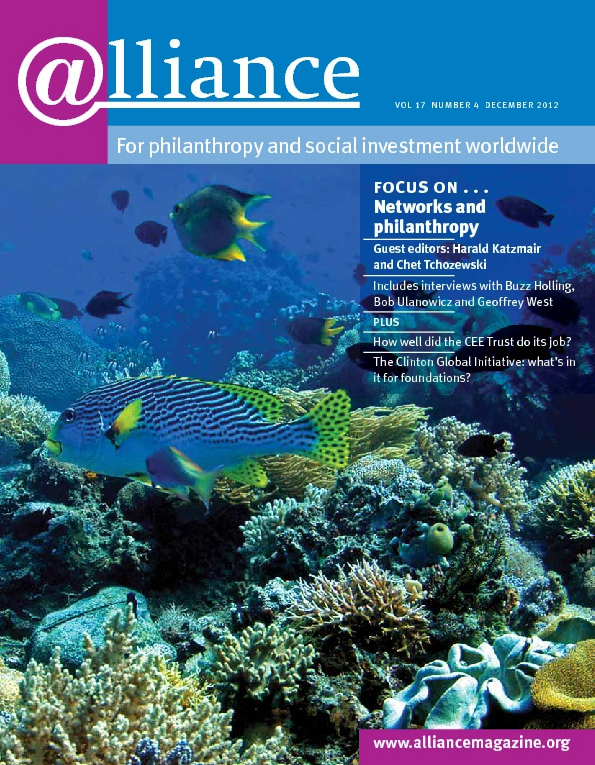Networks are about relationships, or, to be more precise, they are a language to describe and graphically model flows and interactions, in our case mainly between humans or organizations. Historically this language borrows its vocabulary mostly from mathematics, economics and engineering. The phrase ‘connecting people’ throws up an image of an assembly line where technical components are mounted. Social network graphs (like the map of Jordan irrigation farmers) resemble the blueprints for technical entities. In our Facebook world, where ‘liking’ so-called ‘friends’ is just a mouse click away, networks became a synonym for a technological platform and not for the interactions themselves.
This is a very functional view of human relations. It sorts humanity into three types: those who are or might be beneficial for me (my ‘friends’); those who do or might do damage (my ‘enemies’); and the ‘neutrals’, those I can ignore. In all three cases they are factored as transaction costs: the faster a beneficial transaction the better; the faster the neutralization of enemies the better; the more ‘others’ I can ignore in my life the better. Isn’t this a cynical view of human relationships? Isn’t it one of the reasons why we are stuck in so many areas of our society, imprisoned as individualized homo economicus in a hellish story that we are told every day about our own selfish nature and why we shouldn’t trust others? Aren’t philanthropists contributing to this by talking about networks as an ‘organizational principle’ to be managed to achieve their goals? Aren’t we also trying to manipulate others in a way that we justify by pointing to the nobility of our cause?
Maybe we shouldn’t worry too much about this, since reality will sooner or later rouse us from our fantasies of control and power over network dynamics. Networks are an ensemble of human relationships: where humans are, drama will follow. There is love that without apparent reason turns into hate, prejudice that turns into friendship and peace. There is ambiguity and misunderstanding, contradiction and ambivalence. If you really want to understand networks, try changing one. You can’t intervene like an engineer designing a new car. It doesn’t work. Networks grow and age; they change. They need time, money and meaning to become resilient and to become in turn a material and inspirational source for other networks to feed on. Those who sell networks as organizational silver bullets are silent about the relationship of energy flows and network structure. Form follows flow and if there is no flow, there is no network.
Over the last 20 years, in my profession as social network analyst and consultant, I’ve seen that most networks that are set up deliberately fail. Since outflow determines inflow (give and you will receive!), if there is nobody willing to really give, the participants stay locked in their own alleged microeconomic cleverness. To realize the potential of human relationships we have to move beyond the egoistic mind games that consume so much of our energy in micro-calculations, conflict or paranoid anticipation of conflict and look at how we perceive our network partners.
A relationship is by definition something that exists between you and me. Social capital is something that’s embedded in the ‘space between’ not something you or I can own or control like a car or a building. Look around you as you read this and you will see that 99.9 per cent of the things you are wearing, touching or seeing were not made by you but are nevertheless of service to you. How could we come up in our so-called ‘networked age’ with the mad delusion that we have first to create networks as if we were not part of a universal web of value creation already?
The fact that you can’t engineer a network doesn’t mean that you can’t help a network to grow by providing humus, water and nutrients through money and meaning. That is what philanthropic work is all about. But be aware that your mindset and deeper understanding of human relationships will have an impact on how much you really open yourself up and how fast you close down. It’s your mindset that will either activate short-term cleverness or allows you to act upon a wisdom far more profound and effective for real transformation.
The more people open up to this kind of ‘relational wisdom’ that is expressed in the ‘web of life’ metaphor, the more ‘networks’ can be a game-changing strategy. If we stick to a mechanistic understanding of networks, I see the risk that networks will be just another managerial fad in the attempt to manipulate the world in support of the competitive games played between clever egos.
Harold Katzmair is executive director of FAS.research – Understanding Networks, based in Vienna, Austria. Email harald.katzmair@fas.at



Comments (0)